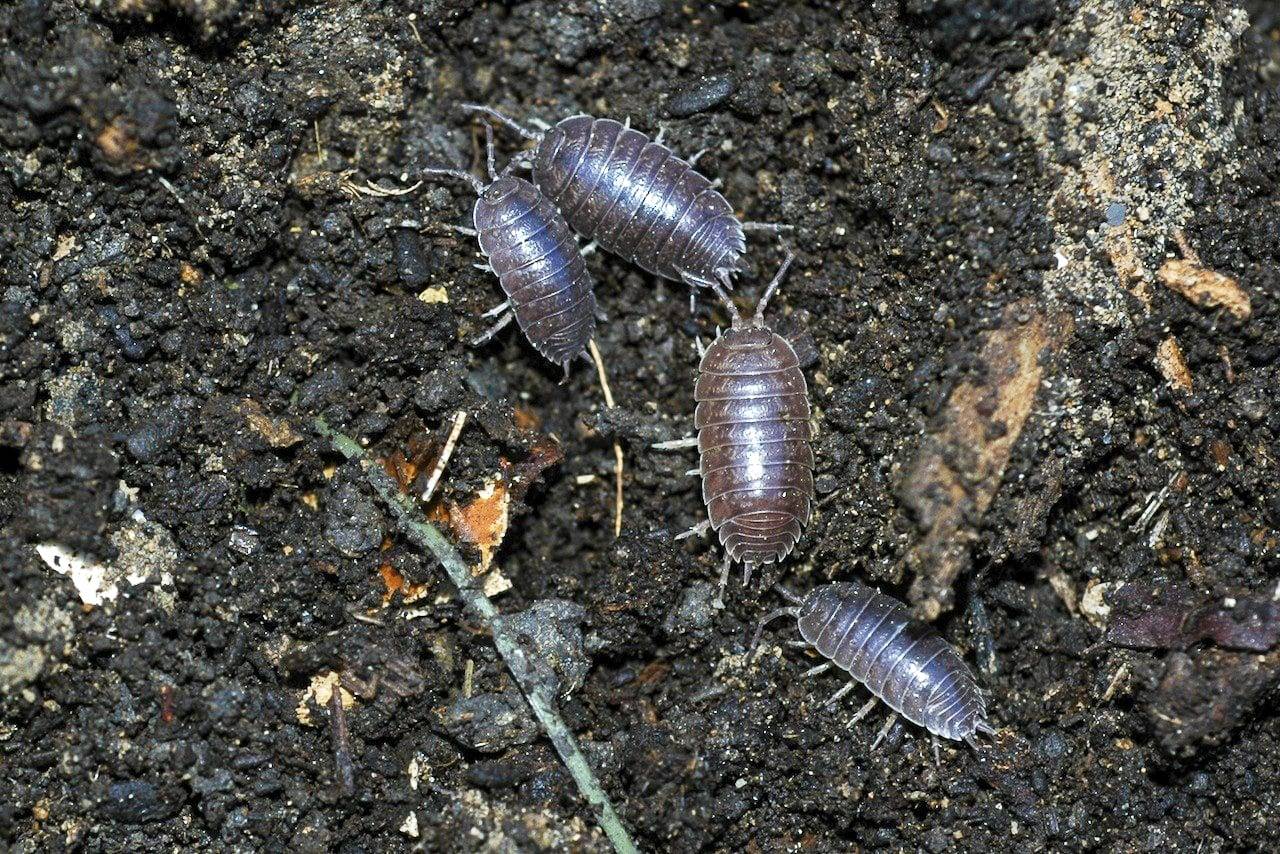The humble pill bug, also affectionately known as a Rollie Pollie, Roly Poly or woodlouse, is a common sight in gardens worldwide. These little crustaceans with their distinctive ability to curl into a ball are often met with a mix of curiosity and apprehension by gardeners. But are pill bugs beneficial or destructive to our beloved gardens? The answer, like many things in nature, is not a simple one.


Are Rollie Pollies (Pill Bugs) Good or bad for Your garden?
Decomposers at Heart:
Pill bugs are detritivores, meaning they feed on decaying organic matter. This includes fallen leaves, dead plant material, and even animal feces. As they munch their way through this detritus, they play a vital role in the decomposition process. Decomposition is a crucial step in the nutrient cycle, breaking down organic matter into simpler forms that plants can readily absorb. In essence, pill bugs act as nature’s recyclers, helping to return valuable nutrients back to the soil, promoting healthy plant growth.
Benefits Beyond Breakdown:
The advantages of pill bugs extend beyond their role in decomposition. Their burrowing activities help to aerate the soil, improving drainage and allowing for better root development in plants. Additionally, pill bugs contribute to the creation of compost by breaking down organic matter in compost piles, accelerating the composting process.
The Potential for Damage:
While beneficial in many ways, pill bugs can, under certain circumstances, become a nuisance in the garden. They are particularly fond of moist environments and tend to congregate in areas with high levels of organic matter. If populations become large and food sources are scarce, pill bugs can turn their attention to living plants, particularly young, tender seedlings. They may munch on leaves, stems, and even fruits, potentially causing damage to your precious crops.
Signs of a Pill Bug Problem:
How can you tell if pill bugs are becoming a problem in your garden? Look for signs of damage on young plants, such as chewed leaves or missing chunks of stems. You may also notice the presence of pill bugs themselves, particularly in moist areas under mulch or around decaying organic matter.
Keeping Pill Bugs in Check:
There are several ways to manage pill bug populations in your garden and prevent them from becoming a major threat. Here are some tips:
-
Habitat Modification: Reduce the hiding places for pill bugs by removing piles of leaves, debris, and excess mulch around your plants. Aim for a thin layer of mulch (around 2 inches) that allows the soil to breathe.
Moisture Control: Maintain good drainage in your garden beds to avoid creating overly moist environments that attract pill bugs.
Natural Predators: Encourage natural predators such as toads, frogs, and certain types of beetles to take up residence in your garden. These creatures will help to keep pill bug populations in check.
Physical Barriers: Create physical barriers around your seedlings using organic materials like eggshells or coffee grounds. The rough texture and potentially repellent scents may deter pill bugs from feasting on your young plants.
Trapping: Set traps baited with potatoes, carrots, or other starchy vegetables to attract pill bugs. Collect and dispose of the trapped creatures regularly.
Finding the Balance:
Ultimately, the key to coexisting with pill bugs in your garden is to maintain a healthy balance. These little detritivores offer valuable benefits to your garden’s ecosystem. However, it’s important to be mindful of their potential for damage, particularly to young plants. By implementing preventative measures and controlling populations if necessary, you can ensure that pill bugs remain beneficial friends in your garden, not destructive foes.
Beyond the Garden:
The role of pill bugs extends beyond the garden. They are important players in various ecosystems, including forests, grasslands, and even caves. Their detritivore activities contribute to the breakdown of organic matter in these environments, ensuring the continued health of these ecosystems.
The Future of Pill Bugs:
As research on pill bugs continues, we may discover even more about their ecological significance. Their ability to thrive in diverse environments and their role in decomposition processes make them interesting subjects for scientists studying soil health and nutrient cycling. Understanding the complex relationship between pill bugs and their environment can help us promote sustainable gardening practices and maintain healthy ecosystems.
Conclusion:
Pill bugs are fascinating creatures with a vital role to play in the natural world. While they may occasionally nibble on your garden bounty, the benefits they provide often outweigh the potential for damage. By adopting a balanced approach and understanding their ecological role, you can ensure that rollie pollies remain helpful companions in your garden, contributing to a thriving ecosystem that promotes healthy plant growth.
What to do When Your Zojirushi Rice Cooker Gets an H01 or H02 Error Code
What happened to Dale Robertson’s horse Jubilee?
What does it mean when a lizard poops on you?
What is the meaning of 18 bills in a debut?
What is the most expensive item on TF2?
This story originally appeared on Mostexpensivething

